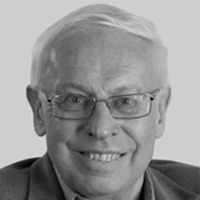The new challenges in IFOM
December, 2018
More than fifteen years after the start of its scientific activities, IFOM has established itself on the national and international scene as a consolidated reality in the field of molecular oncology. If the first years of IFOM were mainly characterized by fundamental research activities, over the years the research strands have increasingly provided ideas to start translational programs in order to have a concrete impact on the patient and thus close the cycle with the Civil Society. In this way, IFOM has established - in partnership with the European Institute of Oncology - an integrated system of highly specialized realities (Cogentech, TTFactor) that are not easily found in the Italian scene.
This experience in molecular oncology is now facing a new challenge: the progressive aging of the population both in Italy and in Europe. This demographic phenomenon is reflected in research, as it is increasingly evident that cancer and aging are closely linked. This represents a great opportunity for IFOM thanks also to the network of high-quality international partnerships woven over the years that can allow the Institute to face this challenge in an innovative and effective way.
What is the current state of affairs and how are the outlooks in molecular oncologies outlined? What are the consequences of the aging population in terms of chronic diseases? These are the questions IFOM is approaching.
2017 also saw the extension of IFOM's internationalization activities with the signing of the Memorandum of Understanding with the University of Shenzhen, in China, which soon followed the creation of the "Shenzhen University-IFOM Center for Genome Stability and Aging" aimed at carrying out research on the topic of genomic instability and its impact on aging in order to develop new therapeutic and diagnostic tools to reduce the risk and impact of aging-related diseases.
Among the various collaborations at national level, I particularly highlight the one activated with the Monzino Cardiology Center with the aim of improving the knowledge of the role of DNA repair mechanisms following mechanical perturbations or pathological affections involving cardiomyocytes derived from patients' iPS cells and / or derived from experimental animal models. Other important academic agreements have been signed with the University of Padua and the University of Trieste for an organic collaboration with the two scientists Stefano Piccolo and Giannino Del Sal of the respective universities respectively on the topic of crosstalk and on the metabolism of cancer cells and oncogenic signaling.
Scientific productivity was confirmed to be high with 134 articles published in scientific journals with impact factor, for a total IF of 1397 and an average IF for publication of 10.42.
The calendar of events of international importance organized by IFOM has also been very varied.
I consider two events particularly successful:
- The ATW 2017 Ataxia-Telangiecatasia Workshop, organized by Marco Foiani and by Vincenzo Costanzo, focusing on the theme of Ataxia-Telangiectasia whose function is crucial to prevent not only neurodegenerative processes, but also the onset of cancer and premature aging.
- The 19th International Conference on Lymphatic Tissues and germinal centers in immune reactions, organized by Stefano Casola in collaboration with Dr. Sidonia del Fagarasan, Riken Institute, Yokohama, in Japan. It was held in Venice and focused on understanding the mechanisms underlying the immune system for the study of leukemia and lymphomas.
Varied and eclectic is also the calendar of popular events planned and organized by IFOM throughout the year, with talk shows and conferences during scientific festivals and the European night of researchers, involving researchers alongside scientific journalists.
The media coverage of IFOM grew in 2017 by counting overo 1000 media services, in the press, on television, in radios and on the web, potentially reaching an audience of 3.6 million citizens.
The subject most covered by the media is the dissemination of the scientific results of IFOM, but also the Institute itself, as an exponent of the scientific community and as an actor of the territory, the human factor and the stories of researchers, and dissemination activities of the YouScientist department. This is certainly a positive sign: it means that there is interest for science also in traditional media and this can have a successful impact on the education of citizens to the value of science.
Equally important is the dissemination activity of YouScientist, the outreach branch of IFOM: dozens of activities and thousands of students and teachers involved. Every year Youscientist contributes with original projects to the deepening of scientific themes with an accessible language and with engaging ways, such as the publication of the e-book "The ten hallmarks of cancer", a scientific essay that tells about the ten characteristics of cancer cells.

